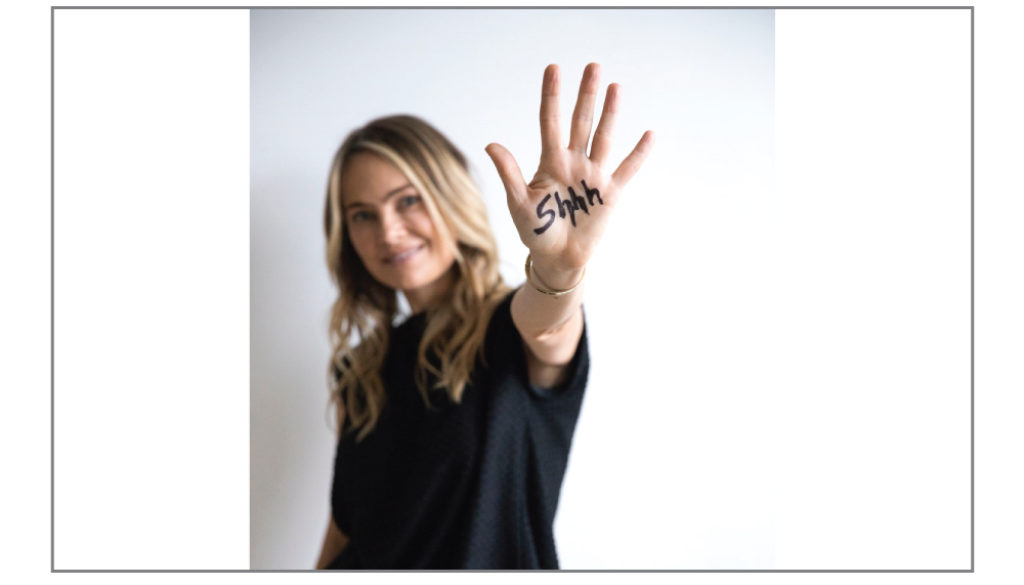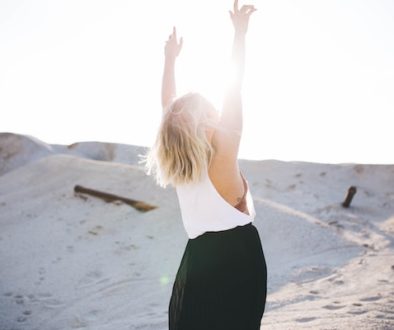The Secrets of Survival on a 10-Day Silent Meditation Retreat.
We’ve all heard the life-changing accounts of people entering back into the world after a silent meditation retreat. On the more drastic end they may quit their job or end their marriage, while the less radical simply move a little slower, observe nature a bit more, and feel more peaceful and content. Out of curiosity and a desire to reach deeper layers within my own practice, I recently took the leap into a 10-day silent meditation retreat. Here is what happened.
The Retreat
After researching all kinds of centres (www.dhamma.org), I narrowed down options based on two critical factors: the meditation technique observed and the washroom situation. While I can handle camping and modest, shared accommodations, I just didn’t have it in me to relive my University residence experience, sharing a bathroom with dozens of people. In the end I chose the Westcoast Vipassana Center in Washington state.
Getting Ready
I felt a sense of readiness and an illusory confidence that because I’d meditated for so many years, I’d somehow be more prepared. But, as the start date approached the outside noise of other people’s narratives began to take hold. Suddenly comments like, “I wouldn’t make it past day one” or even better, “I could never be out of contact with my kids for so long” started to run through my mind. But I had long been on the Buddhist path (I took refuge at the age of 16) and knew that the inner chatter was simply egoic resistance to the changes that were to come.
The Rules
At this retreat we were asked to commit to some basic rules. I particularly liked the rule asking that we refrain from lying. While I mastered that one years ago (being plagued with guilt wasn’t worth it) it seems pretty hard to lie when you’re mute. You’re also asked not to speak, gesture, or look at another participant until noble silence is broken on day 10. We essentially, lived in the quiet asylum of a humble monk.
After day one I quickly decided that the word ‘retreat’ is false advertising. It is neither a break from your life, nor is it vacation. I lovingly renamed the whole endeavour “meditation boot camp.”
There were a few rules I just had to break. You’re asked to refrain from listening to music, reading, or using writing utensils. This allows you to fully focus inward for an intense examination of your own existence. For a writer, being asked to put down your pen (aka computer) is like being cut off from the living light of reality, so I brought my favourite black roller-ink pen but vowed to write only one word per day. My second breach began on day three. With the exception of mindful walking you’re asked to refrain from any exercise, and this proved beyond challenging.
After sitting for up to 10 hours per day I simply had to move, so when no one was looking I’d fit in a few lunges, yoga postures, and even a few crunches when my roommate was sleeping.
Third, you are asked to hand in your phones before the training starts. I just couldn’t do it. I kept mine hidden in my bed quarters like a child with a candy bar. Then I broke another rule and turned it on: I just had to take a picture of the final sunrise of my stay.
A Day in the Life
Each day rivaled the regimented schedule of navy seal training. The gong chimed faithfully every morning at 4, and we were seated shortly after for a 2-hour meditation. Breakfast, more meditation, and lunch ensued. After 12 noon we fasted until the following morning. The rest of the day involved meditation and more meditation (9 hours!) with rest and mindful walking interspersed. During the “evening discourse” we sat quietly listening to a recording of Goenka G. (the core teacher who has long since passed) as he shared a dharma talk about the value of the meditation technique itself, Buddhist musings, and the odd joke about our unruly minds.
We stumbled into bed by 9:30, operating on just over six hours of sleep. In all truth, once I learned that the morning meditation could be done in our rooms I began sneaking in more shut eye. The adjustment from nine hours a night to six was just more than I could bare, and by day three I was in survival mode.
Breaking the Silence
If I had a practical issue (like the toilet overflowing) or needed to speak with the instructor, I could talk to the program manager. I also had access to the instructor 24-7 if serious concerns arose.
It’s not unusual for students to have intense experiences of fear or anxiety and they are always well supported. I reached out several times, mainly to ask questions and see if my voice still worked.
The Down Low
I’ve practiced many approaches to meditation, and I can honestly say that I have never come across a technique that so thoroughly gets down to the conditions of the mind that create the deep roots of our suffering.
Taming your mind is like taming a wild elephant. It pulls, it complains, it fights hard as you pierce the layers of egoic illusions. In time, the build-up of egoic belief systems, emotional and mental patterns, images of trauma, loss, shame, and all other roots to our suffering are loosened and metabolized.
It’s the most thorough mental detox imaginable.
The Takeaway
By constantly observing the changing nature of the mind and body you eventually gain a profound and life changing self-knowledge that leads to a truly happy and peaceful state. Is it painful? Yes, but in time I gained a vast sense of the impermanent flow of thought, emotion, sensation, and all of life’s experiences. The longer I sat in stillness and silence, using these ancient and codified systems of training the mind, the more I could observe life exactly as it is. Between surges of discomfort emerged a much deeper texture where thoughts are transcended and the mind is purified. I experienced unbroken awareness in present time.
One Month Later
While the clarity and lightness aren’t quite where they were post-retreat, I’m more committed to my practice than ever. I meditate twice per day for an hour at a time, and instead of “fitting meditation into my life” my life is organized around my practice. That means earlier bedtimes, giving up nighttime screen time (I’d rather meditate than watch CNN) and some significant dietary changes (vegetarian diet, no caffeine, and no alcohol).
I honestly believe that if we each choose to persistently sit in quiet contemplation each day, every day, that we may elevate connection, compassion, and the kinds of actions that will support our planets survival.
It’s an ongoing process of ever-increasing awareness that takes years, with the hope that one day I may clear the clouds and live fully in the light.
Follow Michele Kambolis on Instagram @michelekambolis




